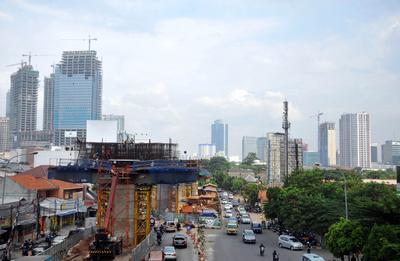But these goals are unlikely to be realised unless there is an enabling environment for the necessary investment and employment opportunities in the country and the economic policy settings remain open to trade, investment and international competition.
On that, there have been mixed signals in recent months.
Indonesia’s economic fundamentals remain strong. Investment realised from abroad climbed by more than 50 per cent in 2010, with another big increase in 2011. This reflects Indonesia’s attractiveness as an investment destination, given its large market of 240 million people, rapidly expanding middle class, wealth of natural resources, and strategic location. The Fitch Ratings Agency has recently upgraded Indonesia’s long-term and local currency ratings to ‘investment grade’, a move that further boosts Indonesia’s standing among global investors. The Indonesian government has worked hard to ensure macro-economic stability. It is crucial that the government continues its reform program and strengthens its macroeconomic fundamentals. Indonesia is now building the financial and physical capital to complement its young and dynamic workforce as well. It is working to develop stronger capital markets to intermediate domestic saving and to ensure capital inflows are well used, while the government is also providing incentives to promote investment in priority sectors. To facilitate investment, Indonesia has passed a law to provide greater certainty around land access, addressed the political risks in public–private partnership infrastructure projects and enhanced the availability of long-term funding to finance long-term infrastructure projects.
Since the East Asian financial crisis in the late 1990s, FDI in the country has been on the rise. While inward investment in the period 1993–2003 was only US$1.8 billion a year, net inflows have been edging towards US$10 billion a year in recent years. The FDI Restrictiveness Index of the Organization for Economic Cooperation and Development (OECD), reveals that, among the 46 countries surveyed in 2010, Indonesia was placed in fifth position as the most restrictive country in terms of FDI behind China, Iceland, the Russian Federation and Saudi Arabia. The A.T. Kearney FDI confidence index, which involves a series of surveys of companies with annual global revenue of more than US$2 trillion and provides an assessment of the prospects of international investment flows, ranked Indonesia 21st in 2007 but the 19th-most-attractive investment destination in 2010. Although handicapped by its weak legal system and poor infrastructure, Indonesia remained a popular destination for investors in the manufacturing industry.
At the same time there are powerful forces in the Indonesian polity that push back on economic openness, atavisms from its constitutional origins and nationalist philosophical roots. These forces can be seen particularly in the resources and agricultural sectors. Indonesia, of course, is not the only country with a nativist approach to investment in these sectors — Australia has been confronting its own nativist instincts in face of the recent surge in Chinese investment — but they are institutionally and constitutionally deeply entrenched there.
In February this year, the Indonesian government issued regulations requiring majority or wholly foreign-owned companies holding mining licenses in Indonesia to divest a majority share of their assets — a minimum of 51 per cent — to an ‘Indonesian participant’ after 10 years of production. For many foreign investors, this means mandatory divestment of equity and represents a step backward in foreign-investment openness.
In this week’s lead essay Simon Butt and Luke Nottage discuss the implications of this move for Indonesia’s foreign investors in the mining sector. As Butt and Nottage point out, the divesting of foreign interests in Indonesian mining enterprises is not a new idea. The 2009 Mining Law required a divestment after five years of production, but did not specify the required amount of this divestment. A 2010 regulation required that Indonesian participants hold 20 per cent equity in foreign-owned mining operations after five years of production, but did not require further divestments. And mining companies operating in Indonesia have long had divestment obligations under ‘Contracts of Work’ with the Indonesian government. But the new regulation goes further, requiring divestment of a majority share.
There is no doubt that the new mining investment regulations significantly reduce the Indonesian mining sector’s attractiveness to foreign investors. Mining contributes 17 per cent to Indonesia’s GDP and constitutes a similar share of FDI (US$3.6 billion of US$20 billion in 2011). If Indonesia wants to increase its economic growth, then it will need to continue to attract more foreign investment, including in the mining sector. Protectionist moves are not isolated to mining — Indonesia’s central bank has recently mooted setting caps on single-shareholder stakes in the country’s commercial banks. This move could also force some foreign investors to reduce their holdings and could delay the biggest-ever acquisition in the country, by Singapore’s DBS Group Holdings Ltd to acquire PT Bank Danamon.
While the management of the macro economy has so far continued to produce relatively good outcomes, delay on the commitment to reduce fuel subsidies will have an adverse impact on the budget and send a bad signal to investor confidence on economic management.
On foreign investment, trade and the diminishing appetite for regulatory reform, the signs are that Indonesia is turning inward and backward. Roubini’s prediction is unlikely come true without invigoration of Indonesia’s reform agenda and re-commitment to open foreign economic policy strategies.

